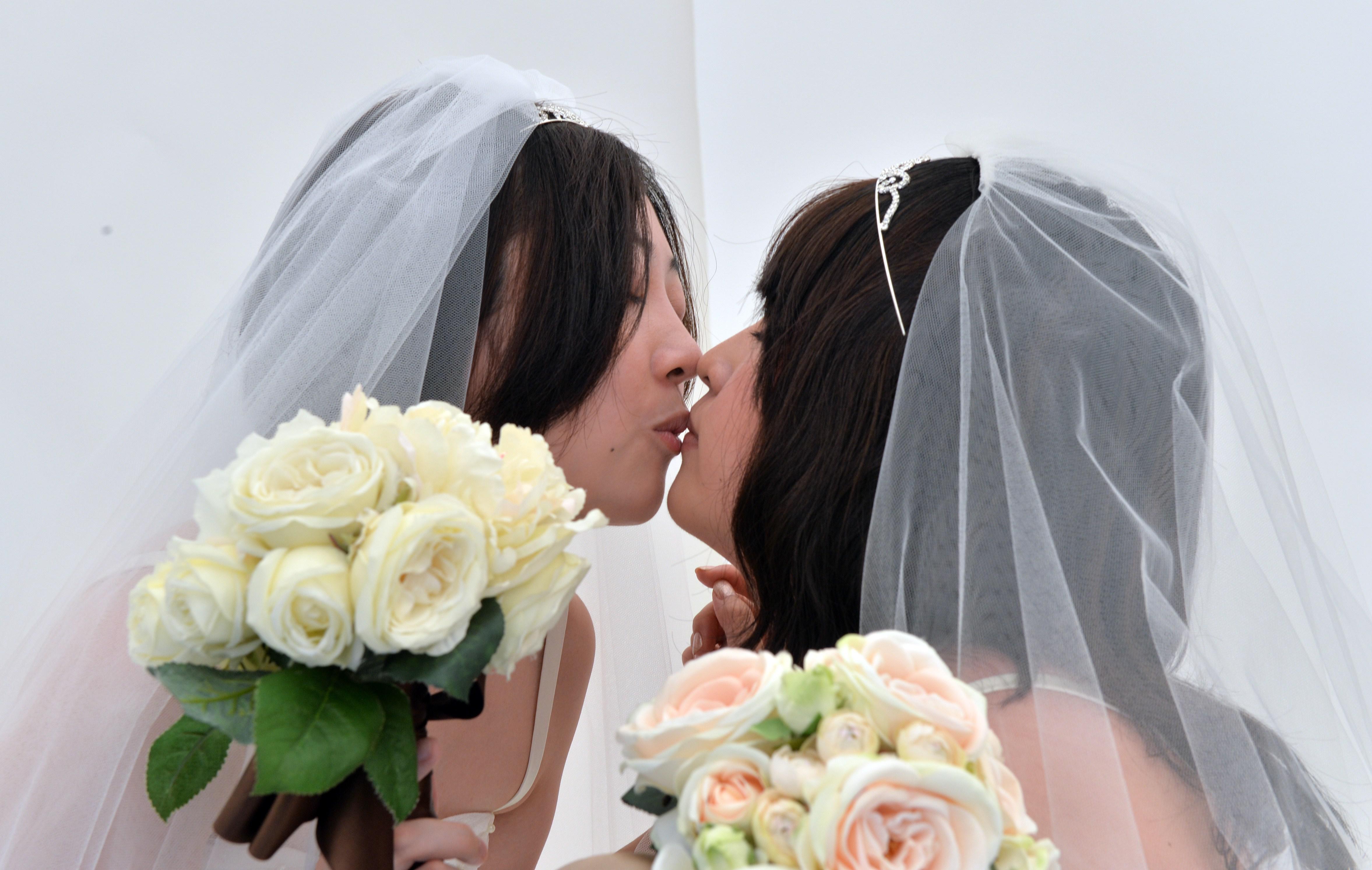At the heart of the so-called religious liberty debate lies a very simple question: Do religious people, mainly Christians, hold a special right to defy anti-discrimination ordinances and refuse service to certain people based on their identity?
In a firm and momentous decision, the New York State Division of Human Rights has now answered that question with a resounding no. The division recently heard the case of Melisa Erwin and Jennifer McCarthy, a lesbian couple who hoped to marry at Liberty Ridge Farm, a wedding venue in Schaghticoke, New York. But Liberty Ridge’s owners, Cynthia and Robert Gifford, denied their request due to their sexual orientation.
The Giffords later claimed that it was their “right” to refuse service to Erwin and McCarthy. But in fact, their actions were plainly illegal. New York state law bars places of public accommodation from discriminating based on sexual orientation—and the Giffords were quite honest about their reasons for turning away Erwin and McCarthy. As a result, the Giffords must pay a $10,000 fine for violating the law, plus $1,500 to both Erwin and McCarthy for “mental pain and suffering.”
What’s so important about the division’s decision, aside from the central holding, which is fair-minded and correct, is that it neatly peels away the myriad rationalizations and pretexts behind the “religious liberty” to discriminate. In an area of the law that can get soggy with abstract theories, facts matter a great deal—and the division finds plenty of them. During legal proceedings, Liberty Ridge tried to rebrand itself as a “distinctly private” establishment, a kind of members-only club open only to a select few. Not so, held the division:
[Liberty Ridge Farms] is a for profit business and directs its publicity to the general public. … LRF engages in widespread marketing to the general public through advertising at a bridal show and on the internet … LRF is encouraging members of the public to lease the use of its facilities and purchase its services. Thus, there is no exclusivity and LRF is not “distinctly private.”
This somewhat dry legalese masks a vital point. Under anti-discrimination law, when you open your business to the public, you open your business to all of the public. You don’t get to pick out certain classes of people and treat them differently, as the Giffords attempted to do. The Giffords don’t operate a church; they run a business—an LLC, in fact—and they are out to make a profit. If they don’t like following the laws that govern LLCs, they can simply forfeit their profit and establish a house of worship, or close their business to the general public.
If you think refusing to serve gay clients is merely an act of dissent, then you’ll probably be outraged by the division’s decision. If you don’t believe religious people carry some free-floating right to flout laws they dislike, however, you should cheer this ruling as a pivotal precedent. Christian business owners like the Giffords have every right to disapprove of gay people and same-sex relationships. But their religion does not entitle them to turn away gay people at the door.
